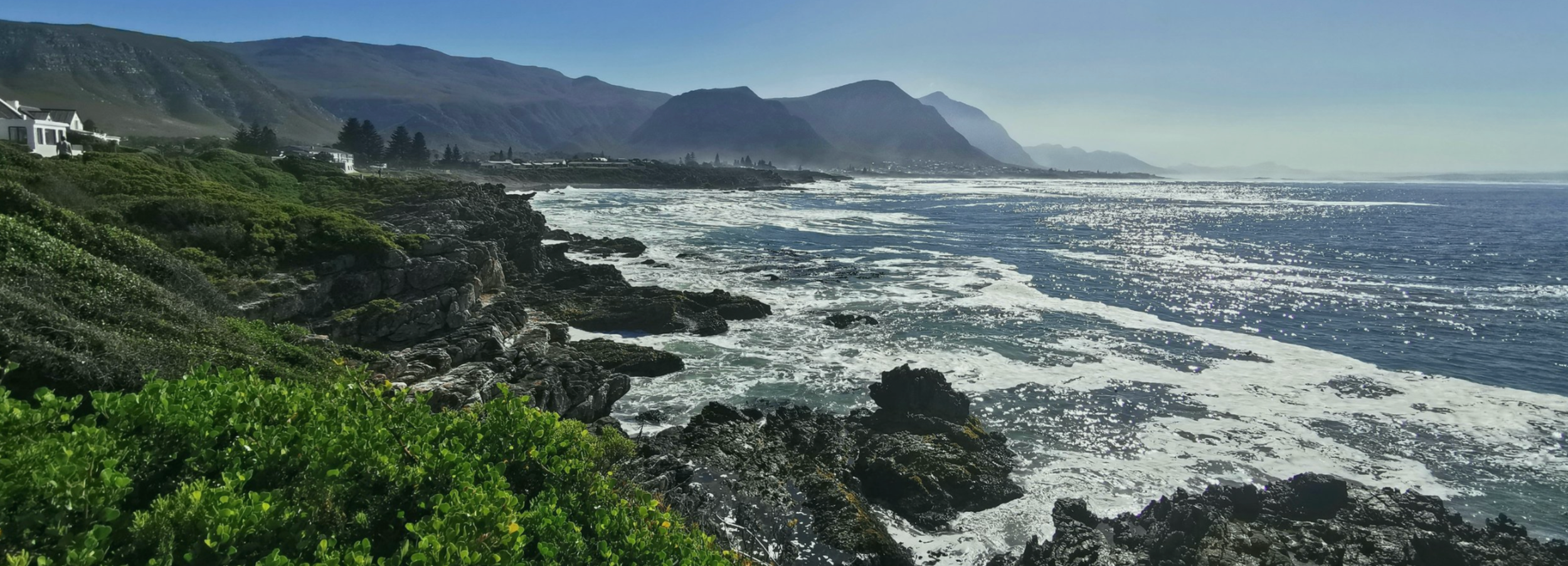Stewards of Nature, WWF South Africa and RSB share first positive water impact results from invasive alien plant removal– and a blueprint for scaling nature-based solutions
Gqeberha, South Africa – June 2025 – A pioneering pilot project led by Stewards of Nature, WWF South Africa, and the Roundtable on Sustainable Biomaterials (RSB) has demonstrated that the potential for restoring significant volumes of freshwater to local ecosystems by removing invasive alien plants (IAPs) can now be quantified, verified, and claimed by end-users across industries.
IAPs cover 10% of South Africa and consume up to 6% of its freshwater*. This is a critical risk in the water-scarce country, particularly in light of the impacts of climate change on water resources. Clearing them is a cost-effective, nature-based solution that restores ecosystems, unlocks water, lowers wildfire risk, and creates jobs. However, there has never been any standard explicitly linking the water benefits to the removal of IAP, leaving the opportunity to make measurable water-related claims largely untapped – until now.
Through collaborative efforts, this pilot project has now addressed this gap, building on a prior science-based methodology to develop a Water Impact Calculator tool that links the removal and use of IAP biomass to measurable water outcomes.
The methodology and tool enable verified water impact claims to be transferred through the value chain. These claims can be made via self-declaration (with optional audit), third-party verification, commonly used for the sustainable aviation fuel (SAF) buyers. This opens the door for companies to incorporate credible, science-backed water savings into their ESG strategies and sustainability reporting, while incentivising IAP removal with broader benefits on biodiversity and job creation.
In the pilot phase, conducted in South Africa’s Eastern Cape, Stewards of Nature cleared 269 hectares of invasive Black Wattle and Port Jackson, removing over 9,000 tonnes of biomass.
Before-and-after imagery shows how clearing IAPs restores ecological function, reduces wildfire risk, improves biodiversity, and frees up water in rivers and dams.
“This is an important milestone for Stewards of Nature – our first verified water impact results, alongside work to measure biodiversity gains,” said Bart Hellings, CEO at Stewards of Nature.
“Our mission is rooted in impact. By sharing these insights, we hope to empower others to scale nature-based solutions that restore ecosystems, unlock water, and regenerate landscapes at speed and scale.”
“As companies set new goals for water and nature, this methodology creates a trusted framework to link on-the-ground action with credible impact claims,” said Arianna Baldo, Programme Director at the RSB. “We look forward to building on this collaboration to support the scaling of invasive alien biomass eradication”.
“WWF hopes to see a huge scaling of rural economies around the eradication of invasive aliens to support biodiverse ecosystems and real water benefits under a changing climate” said James Reeler, Senior Climate Specialist at WWF. “The linking of water claims to biomass supply could provide an opportunity for companies looking to make a difference as they decarbonise and improve their supply chains.”
Looking ahead, the project partners will focus on tracking biodiversity gains from IAP removal – such as improved habitats, species recovery, and healthier soils – further building the case for regenerative land management as a key component of climate and ESG action.
To share these findings and demonstrate the newly developed Water Impact Calculator tool, the partners will host a free public webinar on 24 June 2025 at 10am SAST (8 am GMT). The event is open to South African industry players, policymakers, and conservation organisations.
About the project partners
Stewards of Nature
Stewards of Nature is an impact company rooted in the work of Coega Biomass Centre (CBC). We restore biodiversity as a foundation for climate resilience, water security, food systems, and community wellbeing. All invasive species clearing activities — along with expanded research and quantification in biodiversity and water restoration and conservation — now operate under the name Stewards of Nature. Building on CBC’s legacy, we are scaling business-driven models and tools to restore and sustain healthy natural ecosystems.
Our mission is to bring the care of nature into the heart of economies and decision-making. Backed by Doers —the impact accelerator — we work with landowners, partners, and local communities to make ecological restoration a shared responsibility—and a real, regenerative pathway for people and the planet.
WWF South Africa
WWF is the world’s leading independent conservation organization, with offices in nearly 100 countries in the world. We work to tackle the most critical issues at the intersection of nature, people, and climate to secure a future in which people and nature thrive. We work to addresses drivers and impacts on nature across the areas of oceans, land, wildlife, food, climate and water, engaging collaboratively with stakeholders across society.
WWF South Africa drives water stewardship initiatives with both communities and corporations, identifying water risks and ensuring healthy water-supplying landscapes such as wetlands.
RSB – Roundtable on Sustainable Biomaterials
The Roundtable on Sustainable Biomaterials (RSB) is a non-profit network of global organisations collaborating to advance the just transition to a sustainable bioeconomy. RSB’s globally recognised sustainability framework is the most robust and credible foundation for supporting innovative solutions to the climate crisis. Underpinned by the RSB Principles & Criteria and developed with RSB’s multi-stakeholder membership community, RSB uses this foundation to develop projects, new knowledge and practical solutions that equip key decision-makers to deliver positive impacts for people and planet.
Media contact:
Bart Hellings - CEO at Stewards of Nature
*WWF South Africa Report (2016), “Water: Facts and Futures”, link

